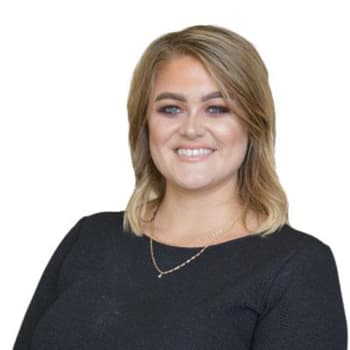Schizoaffective disorder treatment can be challenging when it is combined with drug or alcohol abuse. Patients with schizoaffective disorder can be sensitive to the effects of alcohol and drugs, worsening their symptoms dramatically.
Schizoaffective disorder treatmentcan be challenging when it is combined with drug or alcohol abuse. Substance abuse can create negative symptoms for patients or enhance the already present unwanted symptoms.
Effects of Substance Abuse on Schizoaffective Symptoms
As with most people whoabuse alcohol or drugs, these substances are typically used to self-medicate. Most people feel a temporary relief or masking of their unwanted symptoms, which leads them to believe the substance is helping their illness. However, substance abuse often makes the disorder and its symptoms worse.
Substance abuse not only increases negative symptoms of a mentall illness, it can also reduce the efficacy of treatment. Patients withschizoaffective disordercan be sensitive to the effects of alcohol and drugs, worsening their symptoms dramatically.
Schizoaffective Disorder and Alcohol
Alcohol can worsen the symptoms of schizoaffective disorder.Alcohol addictioncan react with antipsychotic and antidepressant medications in harmful and possibly fatal ways. People with schizoaffective disorder can cause a more devastating effect for themselves by increasing the symptoms through alcohol use. Alcohol can cause more serious depressive symptoms in those with depressive type schizoaffective disorder.
Treatment Can Be Life Changing. Reach out today.
Whether you are struggling with addiction, mental health or both, our expert team is here to guide you every step of the way. Don’t wait— reach out today to take the first step toward taking control of your life.
Schizoaffective Disorder and Marijuana
Marijuana, like alcohol, is one of the most widely used substances by people with schizoaffective disorder. The disorder and marijuana use may be a concern to combine because marijuana use has been associated with earlier onset of symptoms of schizoaffective disorder. The mildpsychedelic effect of marijuanamay also exacerbate thepsychosisalready present due to the disorder. Marijuana, or any drug ingested, may also reduce the effectiveness of medications used to manage schizoaffective disorder.
Schizoaffective Disorder and Stimulants
Schizoaffective disorder is highly likely to be worsened by the use of stimulants.Stimulantsintensify psychotic symptoms and may also cause the onset of psychosis. Stimulants may increase or create feelings of depersonalization.
Statistics on Schizoaffective Disorder and Drug Abuse
With very little research on the schizoaffective disorder and drug abuse together. However, within the few studies published there has been found that between75 and 90 percentof people living with schizoaffective disorder also smoke tobacco. Casual consumption of alcohol or taking recreational drugs can easily lead to abuse or addiction. Otherresearch studieshave also documented the relationship between early drug use and the increased risk of developing a psychotic disorder later.
Can Schizoaffective Disorder Lead to Drug Addiction?
Substance use worsens symptoms dramatically while weakening someone’s functioning, including in relationships. People with schizoaffective disorder may use drugs or alcohol for self-medicating purposes or for other reasons like fitting in when socializing with others. Because of the biological nature of schizoaffective disorder, people are more prone to behavioral and interpersonal problems when engaging in substance abuse. This usage may interfere with recommended treatment and can lead to increased symptoms, setbacks and hospitalizations.
Treating Schizoaffective Disorder with Co-Occurring Substance Abuse
Patients with untreated, or ill-treated, mental health disorders likeschizoaffective disordermight turn to substance use as a way to temporarily soothe or self-medicate their symptoms. Alcohol and drugs change the brain’s chemistry, which may worsen symptoms of depression or mania in people with substance use and schizoaffective disorder.
As with all co-occurring disorders, substance misuse and schizoaffective disorder can complicate each other. If a person receives treatment for addiction or substance abuse, it is likely that a recurrence of use may occur. Also, if an individual only treats the schizoaffective disorder, their substance use disorder will most likely cause worsening of symptoms to return. For the most effective result,treatmentfor both issues is needed simultaneously.
If you or a loved one is struggling with a substance use or co-occurring disorder likeschizoaffective disorder, The Recovery Village can help. Individuals who live with schizoaffective disorder symptoms and have an addiction to drugs or alcohol can receive compassionate treatment from one of the facilitieslocated across the country. To learn more,call The Recovery Villagetoday to speak with a representative.








